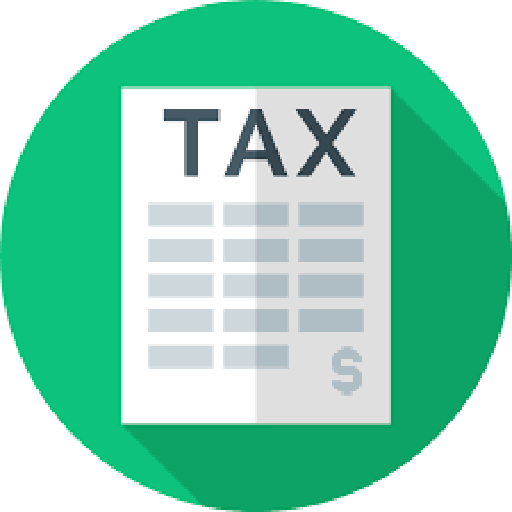Behaviour of business class tax payers on tax compliance in Ethiopian revenue administration
DOI:
https://doi.org/10.31150/ajebm.v3i3.175Keywords:
Behaviour, Tax Payer, Revenue Administration, Tax Compliance, Transparency in Tax System and Distribution patternAbstract
Tax compliance issue is a major problem in revenue generation by the federal government in African countries. In Ethiopia, tax mobilization was also the lowest among sub-Saharan African countries and main purpose of the research is to identify the factors influencing the behavior of tax payer’s on tax compliance in Dessie town revenue authority. The target population of the study was Business Class people which denotes as category “A” tax payers of Dessie town and a Sample of 330 business was taken using stratified sampling followed by random sampling from each stratum from the total population of 1898. The taxpayers were stratified into trade (retailer and wholesaler), service sector and manufacturing (process) according to their field of work or business. The primary source of data was used to collect five point Likert scale data through questionnaire and partake 92.12% (304) as response rate from the sample size. The results exhibited that factors like tax knowledge, perception of tax payer’s fairness in tax system and equity, the influence of referral groups (friends, relatives) and probability of revenue authority audit and government spending on tax collection were influenced the tax payer’s behavior on voluntarily tax compliance. Finally, the revenue office has to ensure understanding of tax knowledge by the tax payer, maintain the transparency of the tax system and equity, collected tax has to be spend wisely by the Ministry of Finance and Economic Development for the welfare of the society and infrastructural development of the country.
Downloads
References
Amina, A. (2013). Determinants of Tax compliance: the case of Jimma town, Master thesis, Business and Economics college, Department of Accounting and Finance, Jimma University.
Amina, A., and Saniya, (2015). Tax compliance and its determinant the case of Jimma Zone, International Journal of Research in Social Sciences, 62, 1-15.
Alemayehu Elda (2018)"Business Income Tax Collection Performance Determinants of in the Case of Boditi Town Revenue Branch Office, SNNPR, Ethiopia "International Journal of Business and Management Invention ,7 (8), 35-46.
Asela Gamini Bandra and Werasooriya (2010), “A Conceptual Research paper on Tax Compliance and its relationship”, International Journal of Business and Management, 14(10):134 -145. DOI: 10.5539/ijbm.v14n10p134.
Bhatia, H.L. (1976). Public Finance, 19th Ed. New Delhi, India: Vikas Publishing House pvt Ltd.
Chung, J., & Trivedi, U. (2003). The effects of friendly persuasion and gender on tax compliance behavior. Journal of Business Ethics, 47, 133–145.
Desta, K. (2010). Assessment of tax payer’s voluntary compliance with taxation: A case of Mekelle city, Tigray, Ethiopia. Master thesis, Business and Economics college, Department of Accounting and Finance, Mekelle University.
Dubin, A., & Wilde, L. (1988) An empirical analysis of federal income tax auditing and compliance. National Tax Journal, 41, 61–74.
Eriksen, K., & Fallan, L. (1996). Tax knowledge and attitudes towards taxation; A report on a quasi-experiment. Journal of Economic Psychology, 17, 387- 402
Federal Negarite Gazette Extra Ordinary Issue Proclamation No. 979/2016.
Gerald Chau and Patrick Leung, (2009), A critical review of Fischer tax compliance model: A research synthesis. Journal of Accounting and Taxation, l (2), 34-40.
James, S., & Alley, C. (2004). Tax compliance cost. Taylor and Francis Journals, 9(3), 281-289.
Manchilote, T. (2018). Tax compliance and its Determinants of tax compliance: A case of Gondor city, Ethiopia, Research Journal of Finance and Accounting, 9(13), 38-45.
Niway, A., & Wondwossen, J. (2015). Determinants of voluntary tax compliance behavior in self assessment system: Evidence from SNNPRS, Ethiopia. International Journal of Science and Research, 5(12), 967-973.
Oladipupo, O., & Obazee, U. (2015). Tax Knowledge, Penalties and Tax Compliance in Small and and Medium Scale Enterprises in Nigeria. iBusiness, 8, 1-9.
Palil, M.R. (2010) Tax Knowledge and Tax Compliance Determinants in Self Assessment System in Malaysia. PhD Thesis, University of Birmingham, Birmingham.
Singh, V. (2003). Malaysian Tax Administration. 6th ed. Kuala Lumpur: Longman
Tigist, M. F. (2017). Taxpayers' perception towards: Tax fairness, tax knowledge and tax complexity of Bole sub city category "B" business profit taxpayers, Master Thesis, St Mary’s University.
Tilahun, A. and Yidersal, D. (2014). Determinants of Tax Compliance Behavior in Ethiopia: The Case of Bahir Dar City Taxpayers. Journal of Economics and Sustainable Development, 5(15), 226-273.
Torgler, B. (2007). Tax Compliance and Tax Morale: A Theoretical and Empirical Analysis. Cheltenham: EE
Yoseph, E. (2018). Determinants of Tax Compliance Behavior in Ethiopia: A case study of West Showa zone, Oromia Region, Master thesis, Business and Economics college, Department of Accounting and Finance, Ambo University.
Yamane, T. (1967). Statistics, an introductory analysis (2nd ed.). New York, NY.

Downloads
Published
How to Cite
Issue
Section
License
Copyright (c) 2020 Uvaneswaran S M, Tsega Zemen

This work is licensed under a Creative Commons Attribution 4.0 International License.









